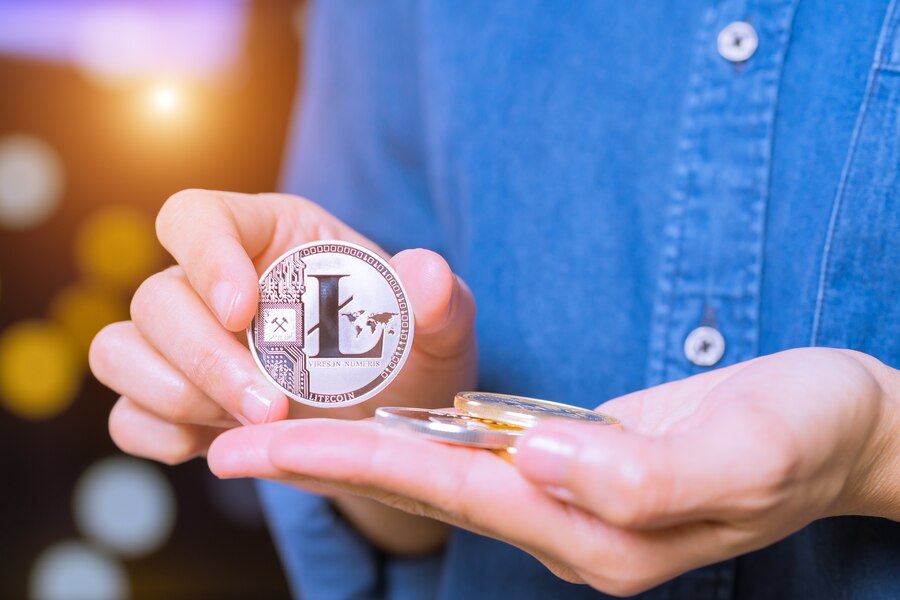
In the evolving landscape of global finance, cryptocurrencies have emerged as transformative tools, with Litecoin (LTC) standing out as a prominent contender for international payments. Introduced in 2011 by Charlie Lee, a former Google engineer, Litecoin was designed to address some of Bitcoin’s limitations, offering a faster and more cost-effective alternative for digital transactions.
Understanding Litecoin
Litecoin is a decentralized digital currency that operates on a peer-to-peer network, enabling direct transactions between users without the need for intermediaries like banks. It utilizes the Scrypt algorithm for its proof-of-work mechanism, distinguishing it from Bitcoin’s SHA-256 algorithm. This choice contributes to Litecoin’s faster transaction processing times and lower energy consumption.
Key Advantages of Litecoin for International Payments
- Speed and Efficiency: Litecoin’s blockchain generates a new block every 2.5 minutes, significantly faster than Bitcoin’s 10-minute block time. This rapid block generation leads to quicker transaction confirmations, making Litecoin an attractive option for international payments that require timely processing.
- Lower Transaction Costs: With average transaction fees often less than $0.01, Litecoin offers a cost-effective solution for cross-border transactions. This affordability is particularly beneficial for businesses and individuals seeking to minimize expenses associated with international money transfers.
- Global Accessibility: As a decentralized cryptocurrency, Litecoin is accessible to anyone with an internet connection, facilitating seamless international transactions without the need for traditional banking infrastructure. This borderless nature ensures that users worldwide can send and receive payments efficiently.
- Security and Transparency: Litecoin’s blockchain technology ensures that all transactions are recorded on a public ledger, providing transparency and security. The decentralized nature of the network reduces the risk of fraud and unauthorized access, enhancing trust among users.
- Liquidity and Market Stability: With a substantial market capitalization and widespread adoption, Litecoin offers liquidity that is advantageous for international payments. Its established presence in the cryptocurrency market contributes to its stability, making it a reliable choice for cross-border transactions.
Comparative Analysis: Litecoin vs. Traditional Payment Methods
| Feature | Litecoin | Traditional Payment Methods |
|---|---|---|
| Transaction Speed | Approximately 2.5 minutes per block | Several business days for international transfers |
| Transaction Fees | Typically less than $0.01 per transaction | Varies; often higher for cross-border payments |
| Global Accessibility | Available to anyone with internet access | Limited by banking infrastructure and regulations |
| Security | High, due to blockchain technology | Varies; subject to banking security protocols |
| Liquidity | High, with substantial market capitalization | Varies; can be limited in certain regions |
Frequently Asked Questions (FAQs)
- How do I use Litecoin for international payments?To use Litecoin for international payments, you need a digital wallet that supports LTC. After setting up your wallet, you can purchase Litecoin through exchanges or peer-to-peer platforms. Once you have LTC, you can send it to the recipient’s wallet address, and the transaction will be processed on the Litecoin network.
- Are there any risks associated with using Litecoin for international payments?While Litecoin offers numerous advantages, it’s important to be aware of market volatility, as cryptocurrency prices can fluctuate. Additionally, ensure that you use reputable wallets and exchanges to mitigate security risks.
- How does Litecoin compare to Bitcoin for international payments?Litecoin offers faster transaction times and lower fees compared to Bitcoin, making it more suitable for international payments that require speed and cost-effectiveness.
- Is Litecoin widely accepted for international transactions?Yes, Litecoin is accepted by numerous merchants and service providers worldwide, facilitating its use for international transactions.
- What are the tax implications of using Litecoin for international payments?Tax regulations regarding cryptocurrency transactions vary by country. It’s advisable to consult with a tax professional to understand the implications in your jurisdiction.
Conclusion
Litecoin’s combination of speed, low transaction costs, global accessibility, security, and liquidity makes it a compelling choice for international payments. As the world continues to embrace digital currencies, Litecoin’s role in facilitating efficient and cost-effective cross-border transactions is poised to expand, offering a viable alternative to traditional payment systems.





